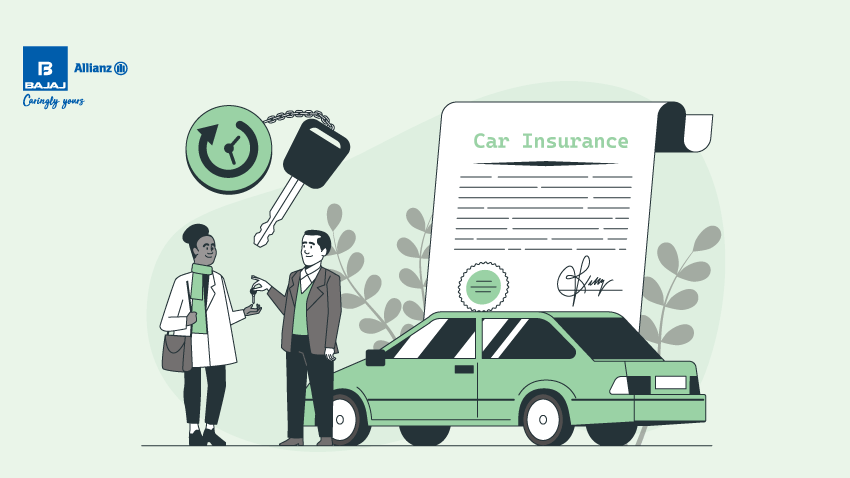Car accidents are unforeseen events that can leave car owners dealing with various challenges. Amidst the repairs and injuries, one decision that many individuals may consider after an accident, is whether to switch their motor insurance company. This choice comes with its own set of pros and cons and can impact both the financial and coverage aspects of car insurance.
How Does Car Insurance Help During Road Accidents?
To understand the pros and cons, we must first get a thorough understanding of the role that car insurance plays during road accidents.
Firstly, it is important to note that as per the Motor Vehicles Act, 1988, every motor vehicle owner in India must have
third-party insurance coverage. This insurance cover provides financial coverage to the car owner in case they become liable for damages or injuries to a third party. Hence, if your car is involved in an accident, know that financial help is at hand with third-party insurance.*
To upgrade
insurance for car, you can opt for a comprehensive plan. Along with covering
third-party liabilities, it provides financial coverage against damage to the car due to accidents. So, repairs and replacements that may be necessary due to an accident are taken care of. Additionally, it also covers natural disasters, fire, theft, and more.*
Claims are subject to terms and conditions set forth under
motor insurance policy.
If you have third-party insurance and are planning to switch insurance providers, you should consider opting for
comprehensive insurance.
Pros of Switching Car Insurance Providers After an Accident
Now, let’s see some pros of opting for another insurer post-accident:
Financial savings
One of the primary reasons many people consider switching is the potential for financial savings. They may believe since there has been an accident and a claim has been raised, the premium may increase if they continue with the current insurer. Opting for a new insurance provider may reduce the chances of a premium increase.
Better coverage options
Going through a claims experience after an accident may bring to light some deficiencies in the current coverage. Hence, if you switch insurers and choose one that provides better coverage options, it may prove to be beneficial in the long run.
Improved customer service
There is a likelihood that some may experience unsatisfactory customer service from their insurer during an accident-related claim. Switching may allow them to choose a provider with improved customer service and efficient claims processing.
Also Read: Indian Motor Vehicle Act 1988: Features, Rules & Penalties
Cons of Switching Car Insurance Providers After an Accident
While you may experience some benefits, there could also be some cons of switching insurers after an accident:
Impact on premiums
After an accident, premiums may increase regardless of the insurance provider. However, switching might not guarantee lower premiums, and individuals could end up with similar or higher costs.
You may want to wait for a certain period after the accident has passed, and then
renew car insurance plan with another insurer. The premium increase may taper off by then.
Loss of loyalty
If you have been with a particular insurer for a long time, you may have developed a strong, reliable professional relationship with them. If you switch insurers, you may lose out on this relationship.
What to Consider Before Switching
If you are planning to switch your insurer, here are some things you must consider:
Assess your current coverage
Before making any decisions, thoroughly assess your current coverage. Understand the terms, limits, and deductibles of your existing policy to identify gaps or areas that need improvement. In case there aren’t any, you may be better off with your current insurer. If there are gaps, research insurers who can fulfil your coverage needs.
A higher coverage could mean a higher premium too. To get an estimate of the premium, you can use a
car insurance calculator.
Check the claim settlement ratio and the related processes
If you have had an unpleasant experience with your claim after the accident, you may want to make sure that the new insurer offers you a smoother claim journey. Research the claim settlement ratio, which indicates the number of claims the insurer resolved in a year as compared to the number of claims they received. Also, look for the claim settlement process; it should be simple and easy to navigate.*
Check network garages
At a network garage, one can claim cashless repairs. Here, the payment is handled directly by the insurer in communication with the garage. Ideally, the new insurance provider should have a large list of network garages so that your chances of accessing cashless repairs increase.*
Claims are subject to terms and conditions set forth under motor insurance policy.
Thus, switching insurers after an accident can have its merits as well as demerits. Before you make the switch, ensure to research important factors regarding the insurer before you finalise insurance for your car.
*Standard T&C apply.
##All savings are provided by the insurer as per the IRDAI-approved insurance plan. Standard T&C apply.
Disclaimer: The content on this page is generic and shared only for informational and explanatory purposes. It is based on several secondary sources on the internet and is subject to changes. Please consult an expert before making any related decisions.
Insurance is the subject matter of solicitation. For more details on benefits, exclusions, limitations, terms, and conditions, please read the sales brochure/policy wording carefully before concluding a sale.
 Service Chat: +91 75072 45858
Service Chat: +91 75072 45858


